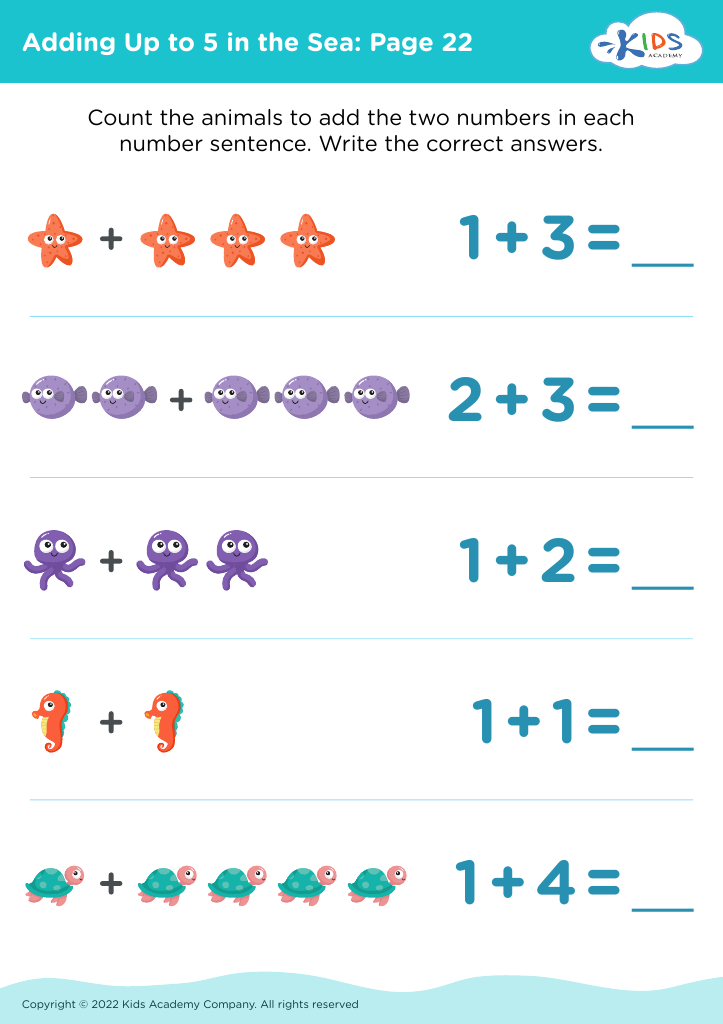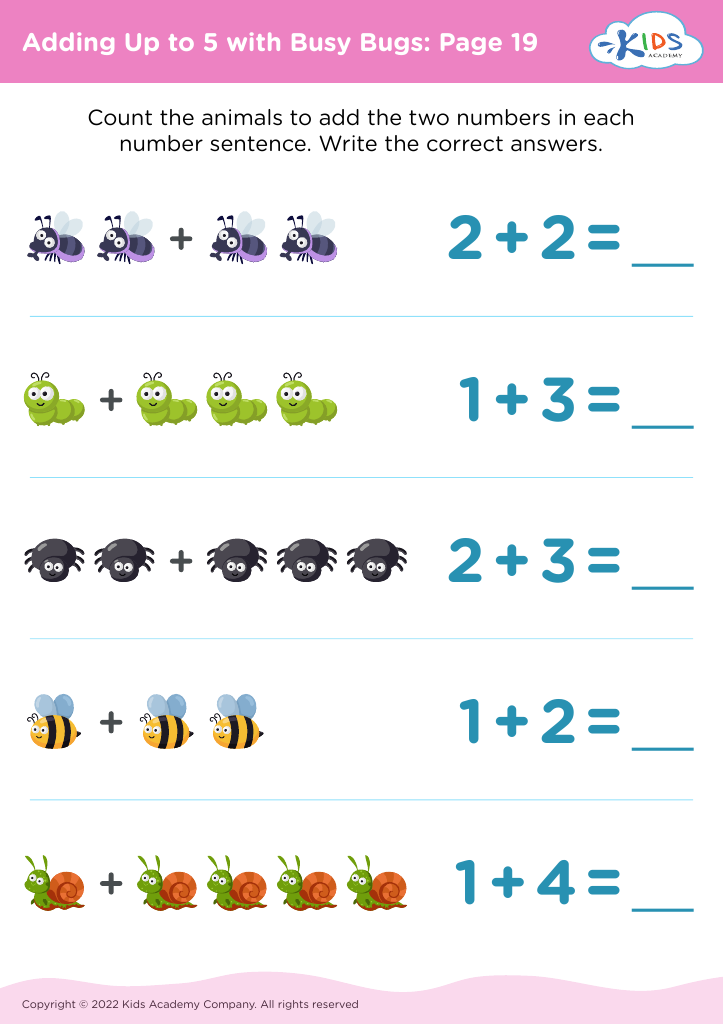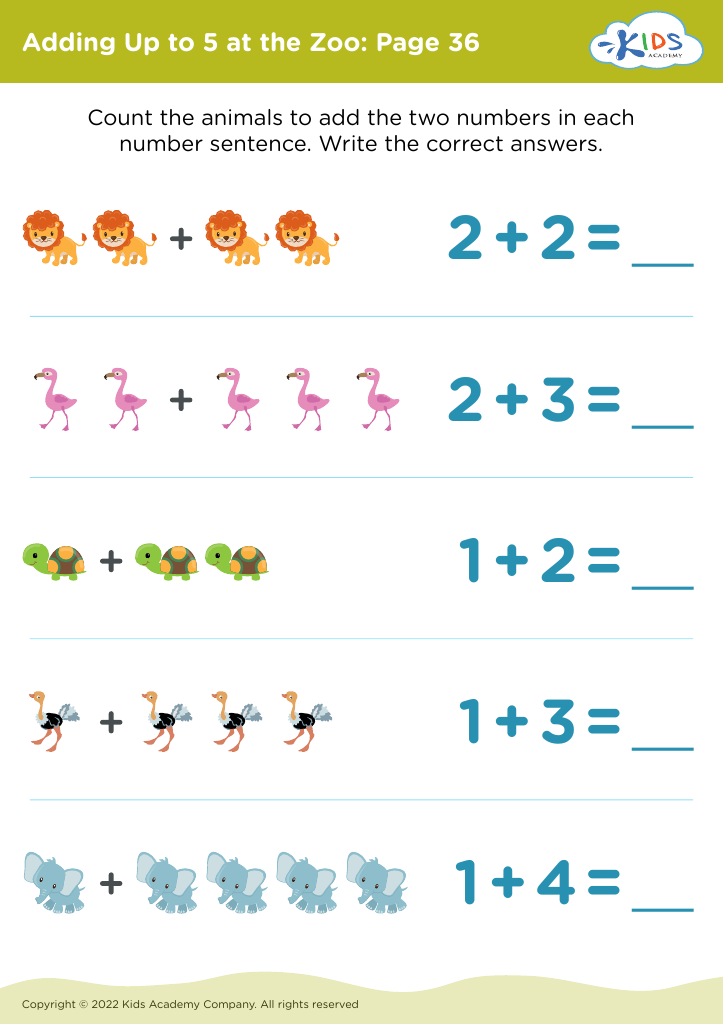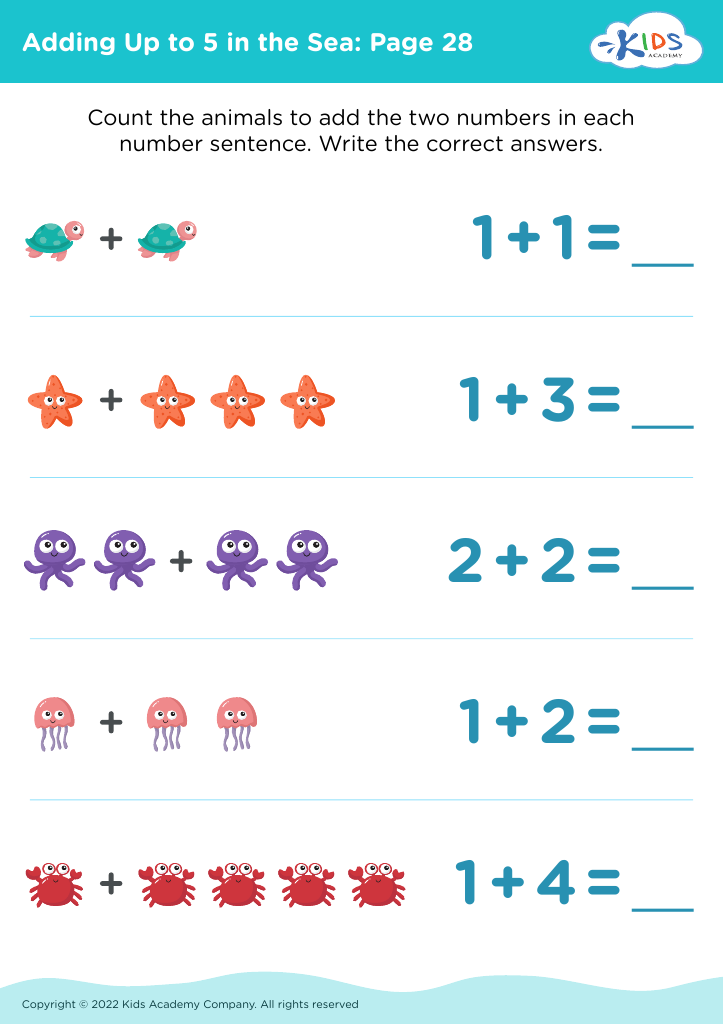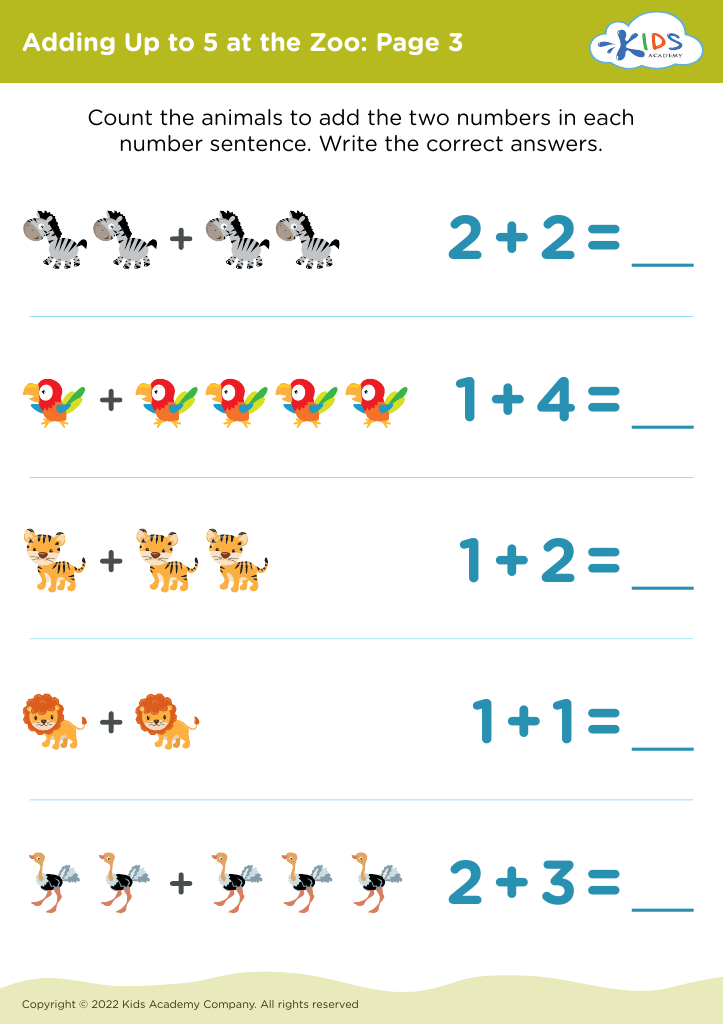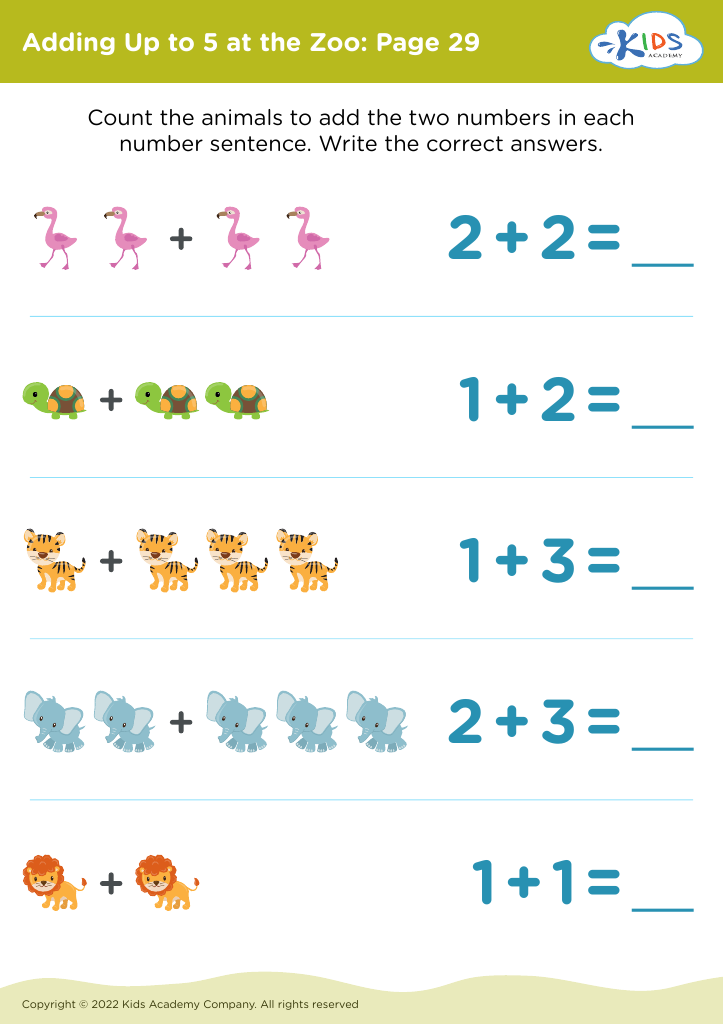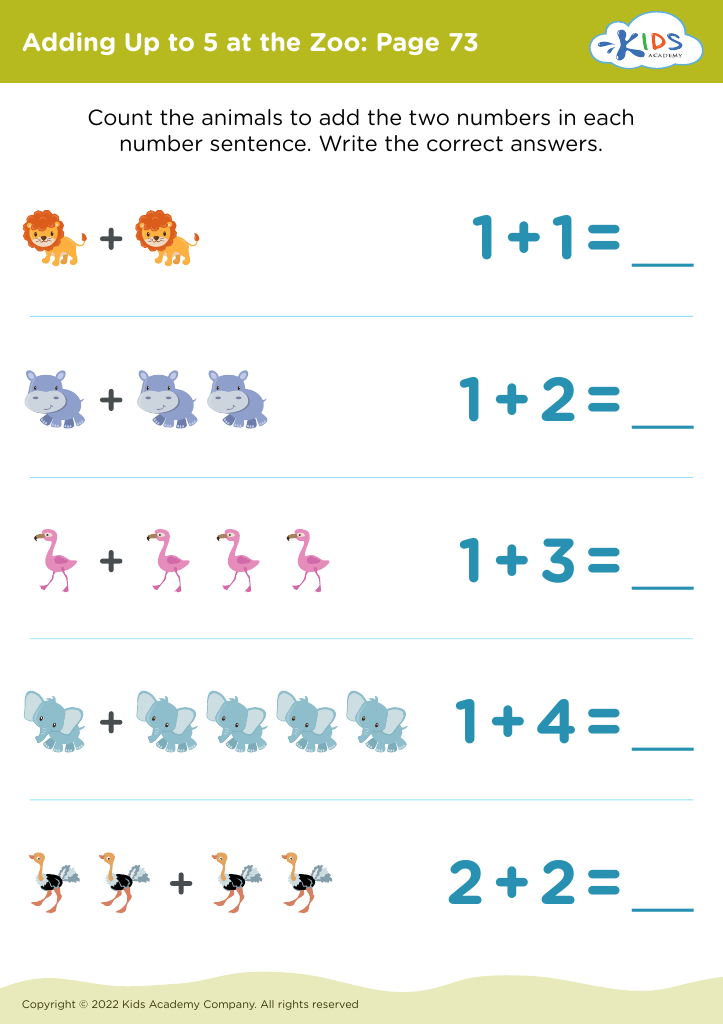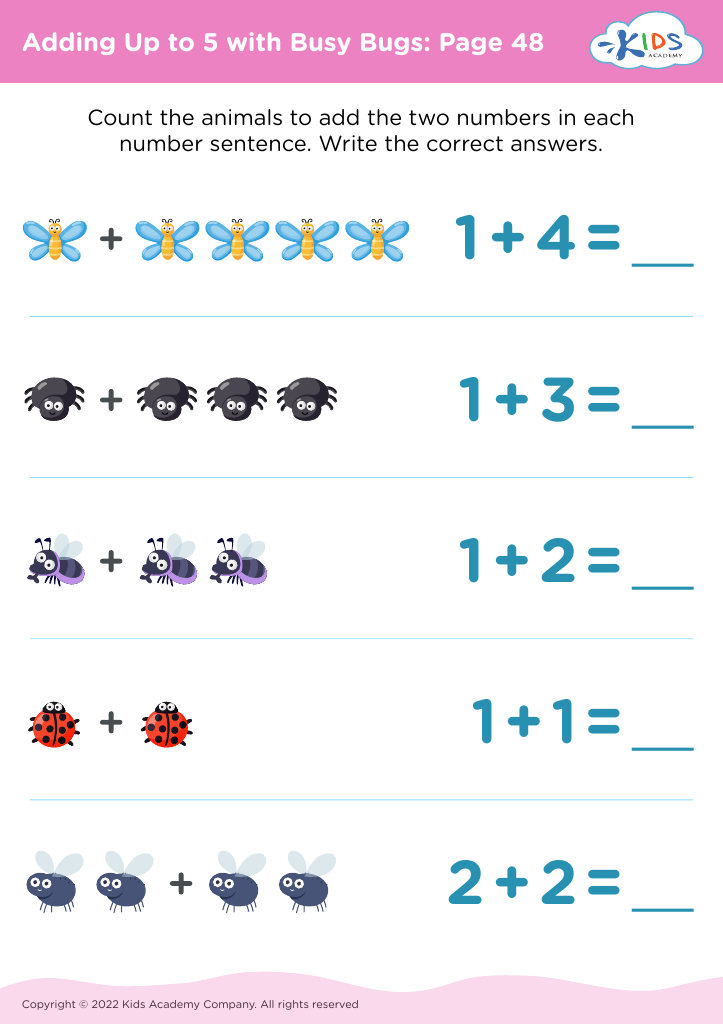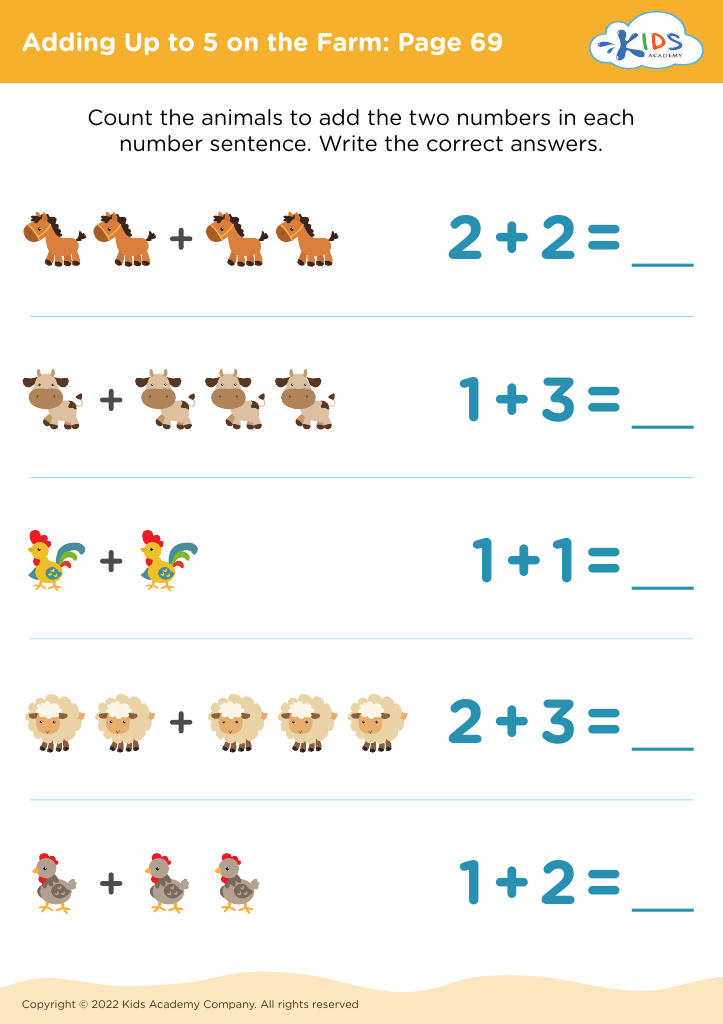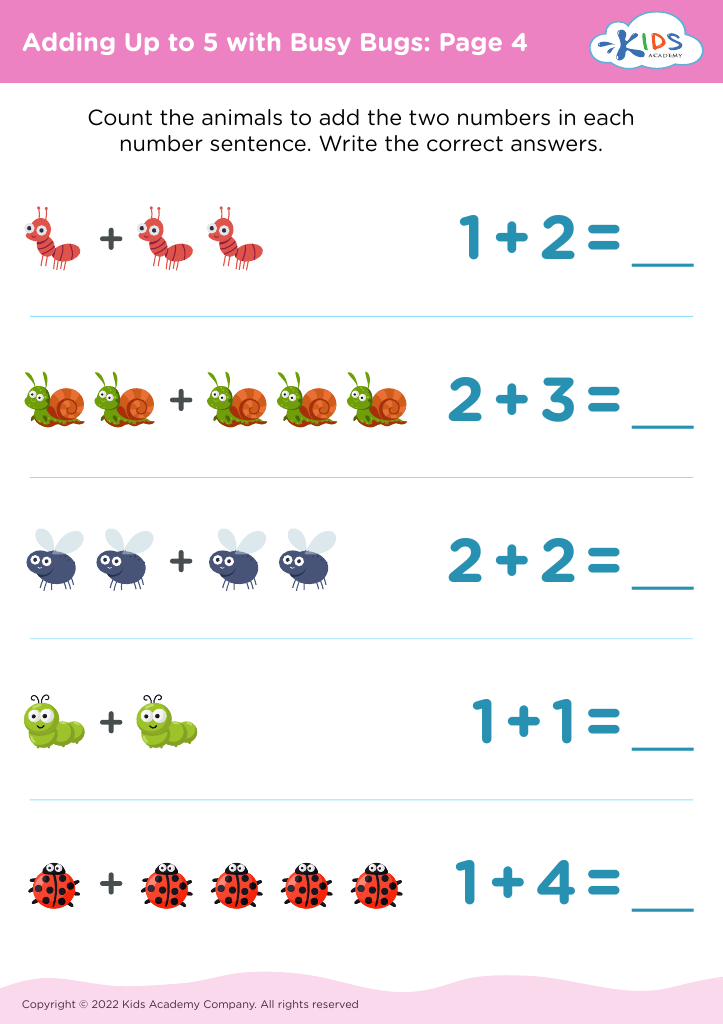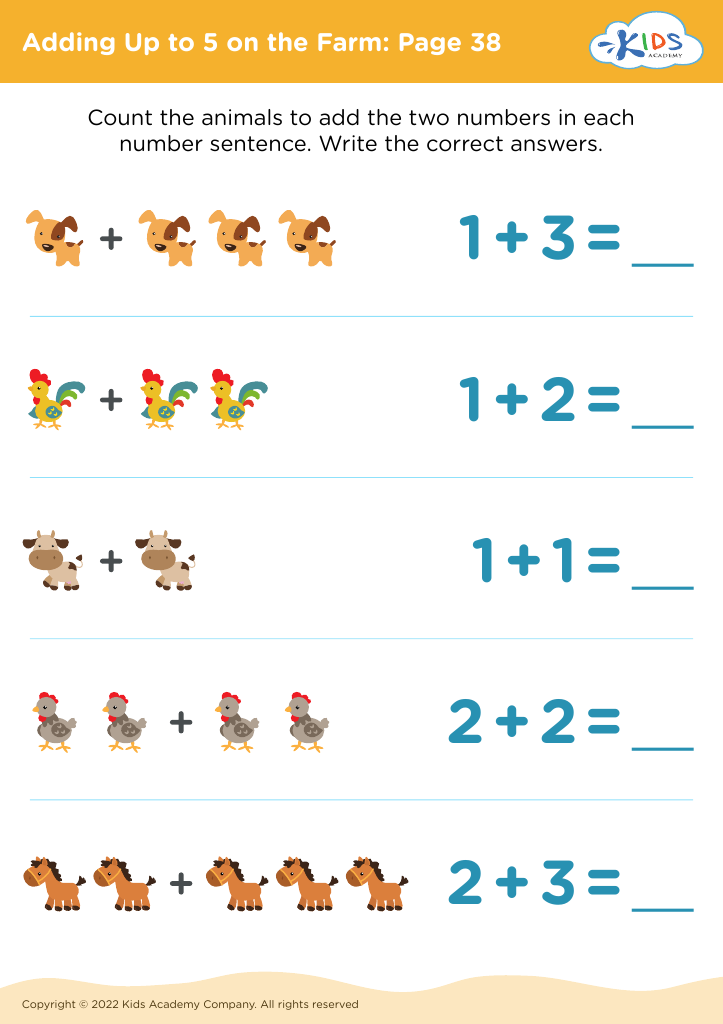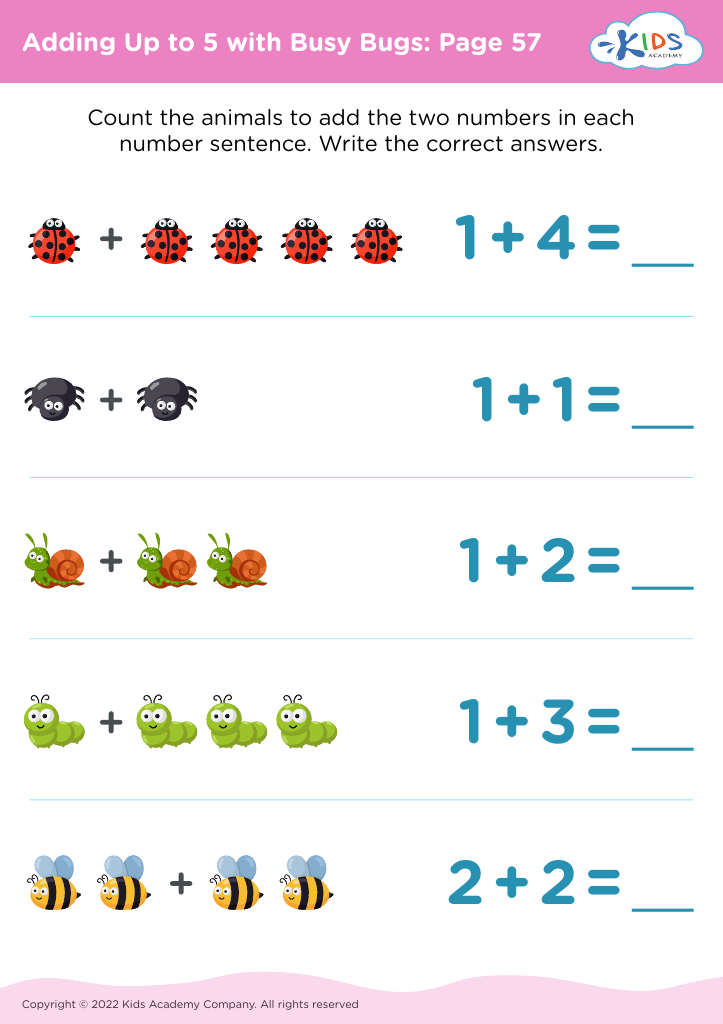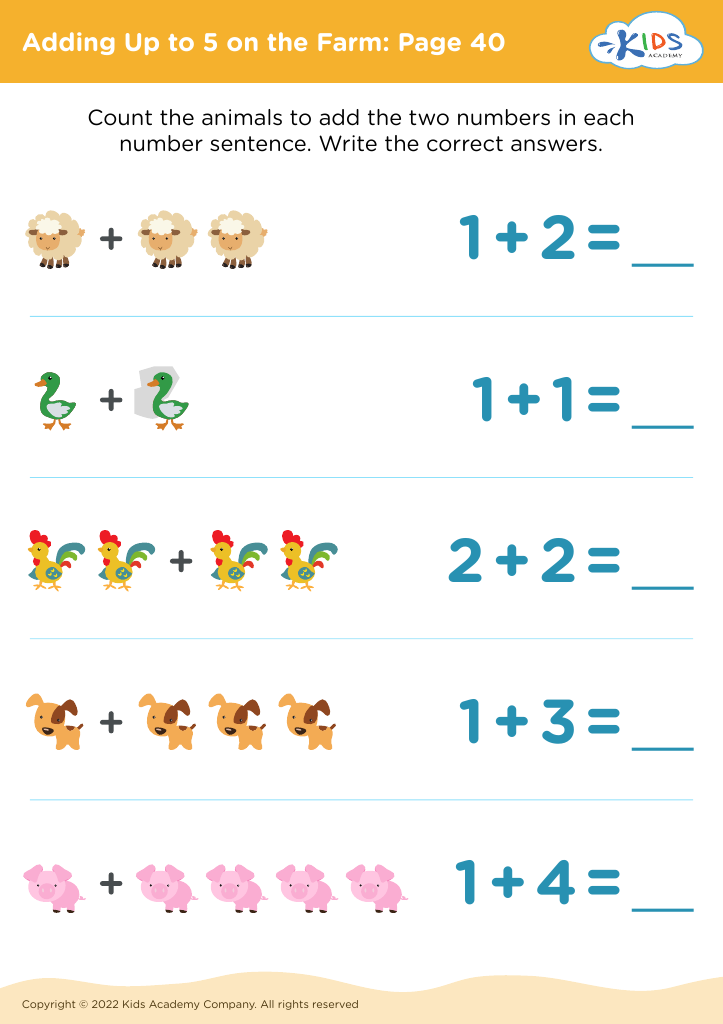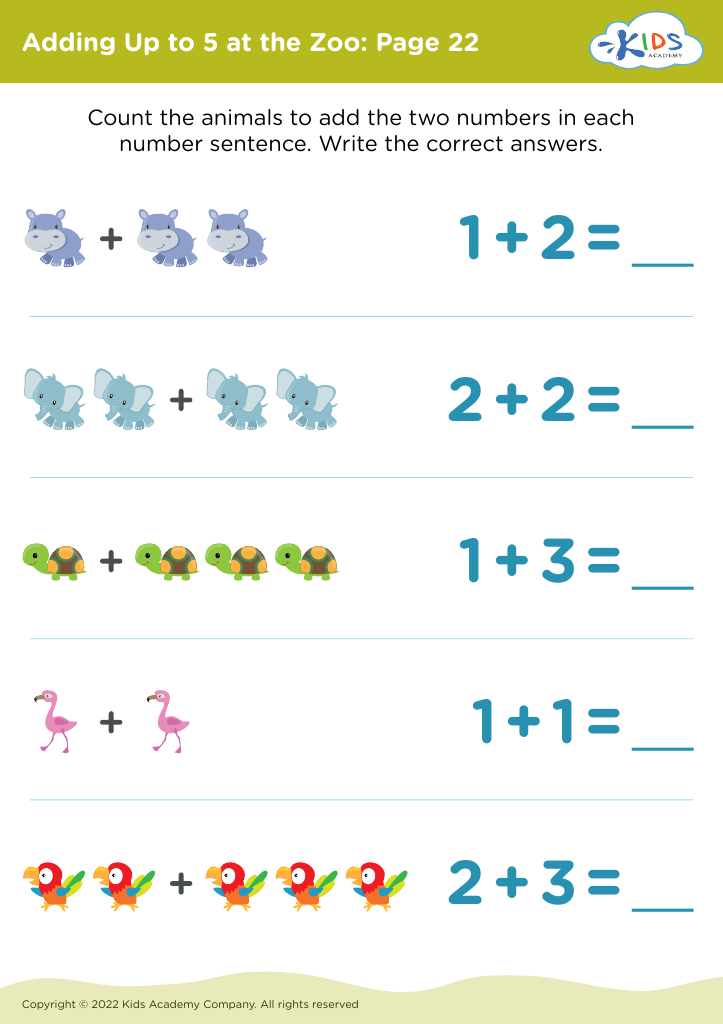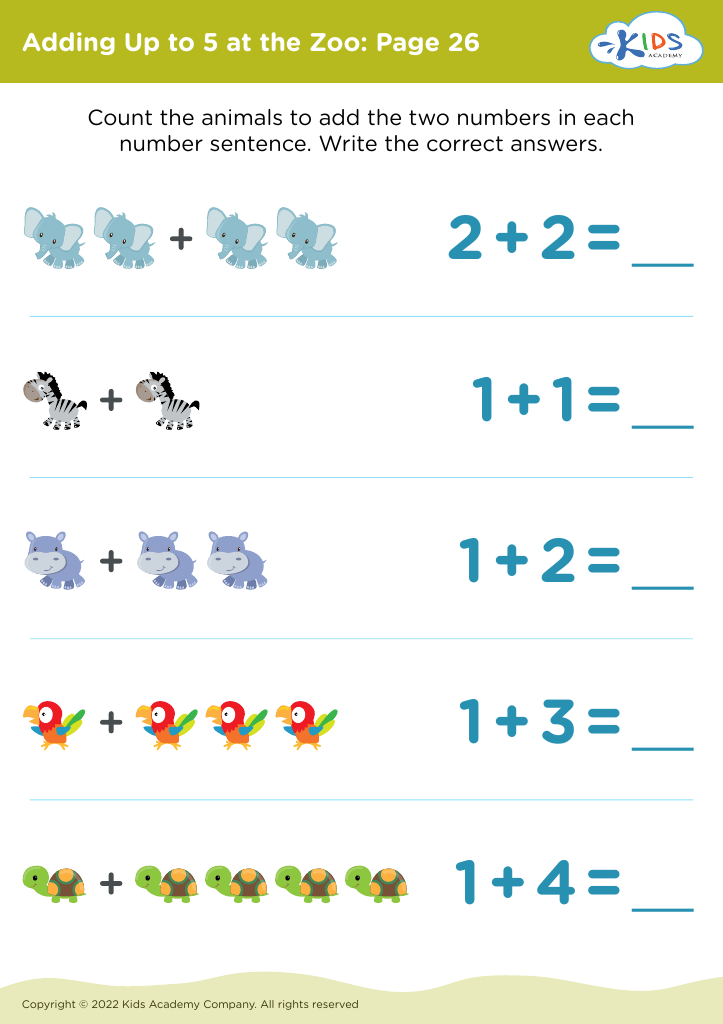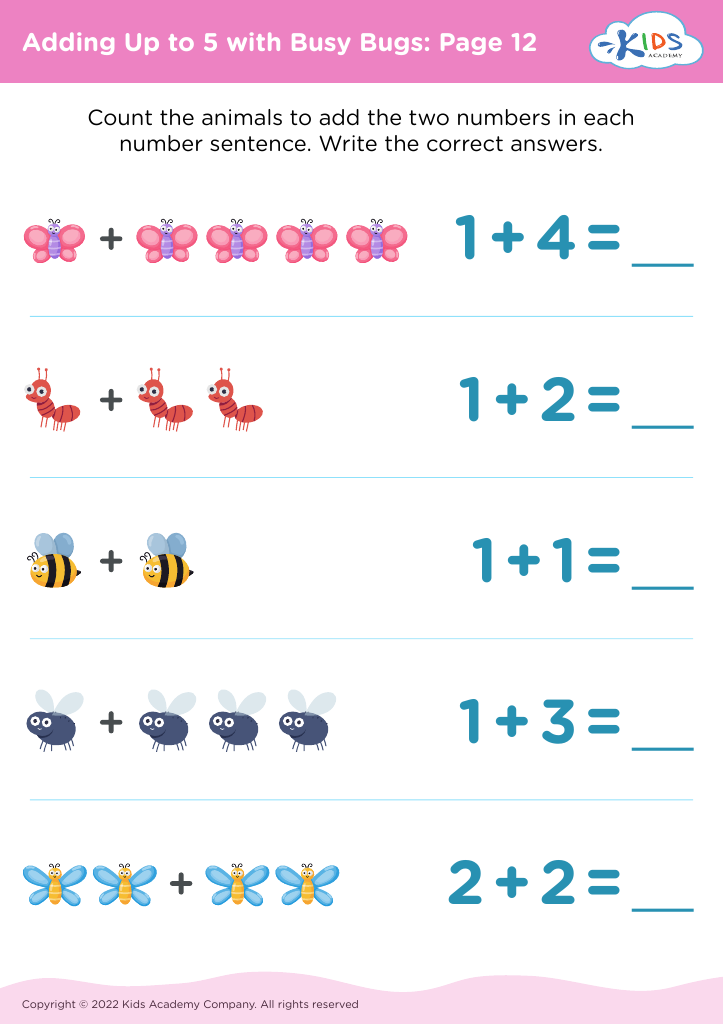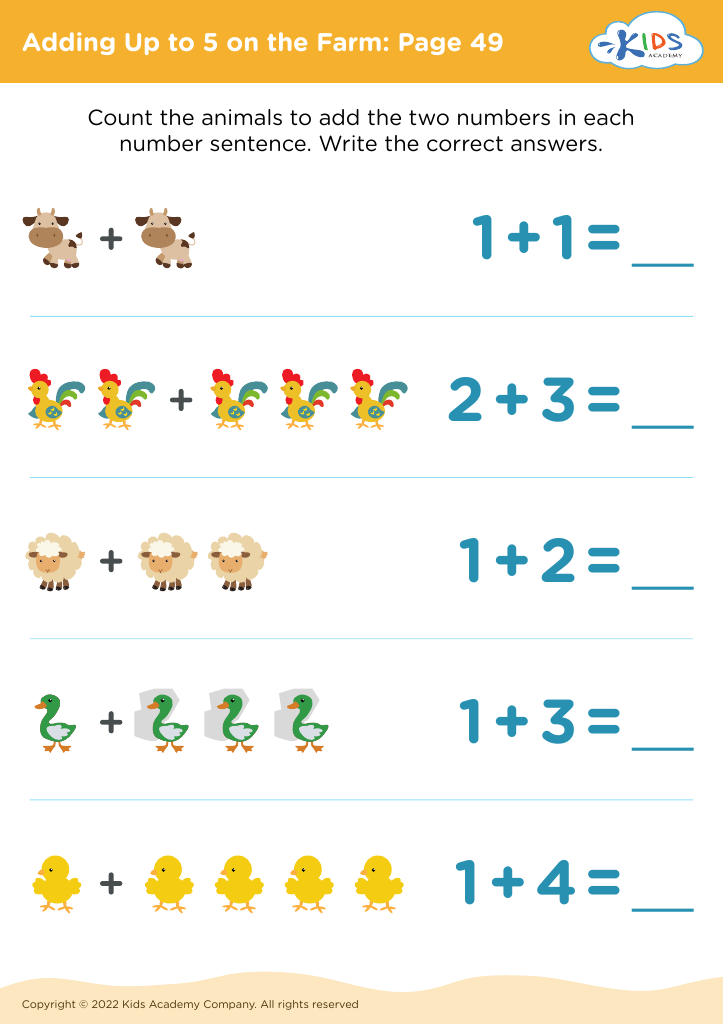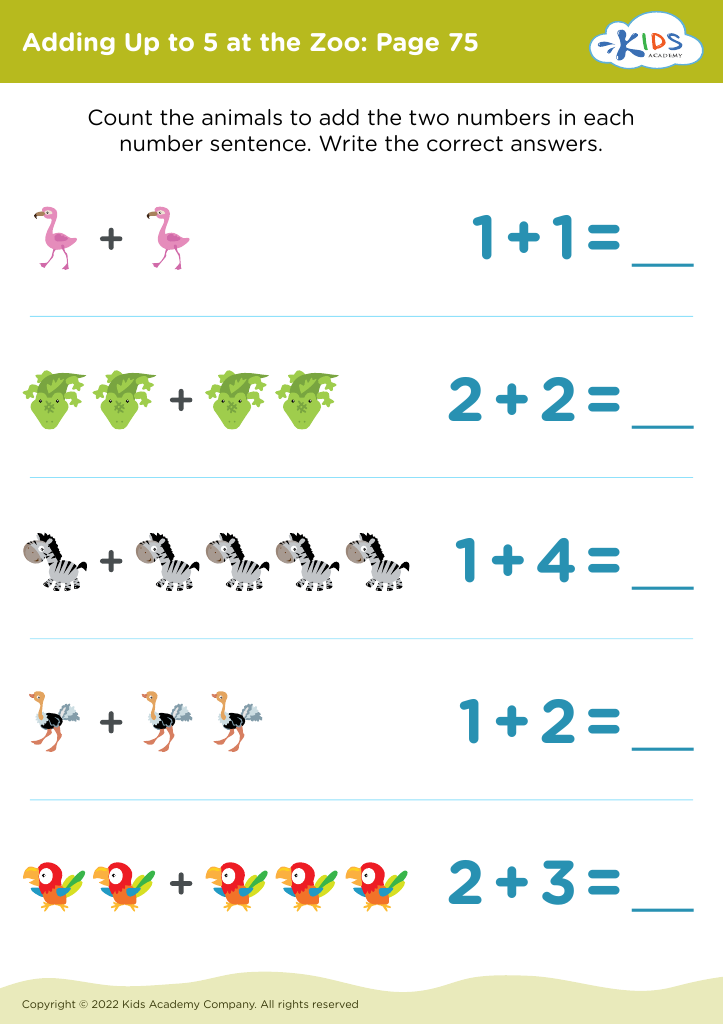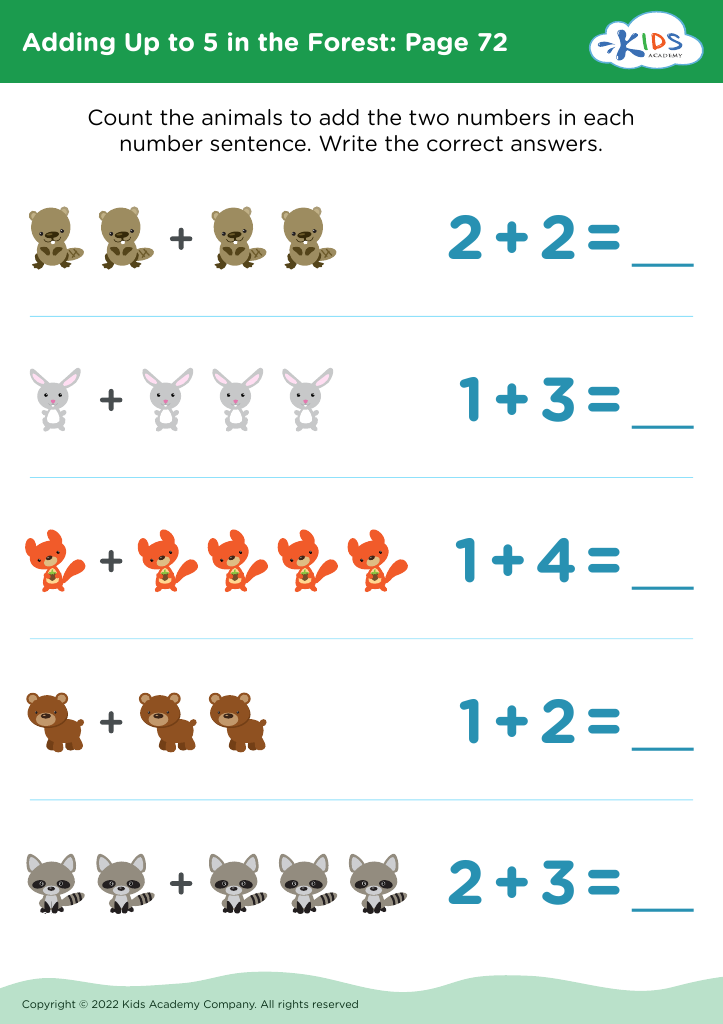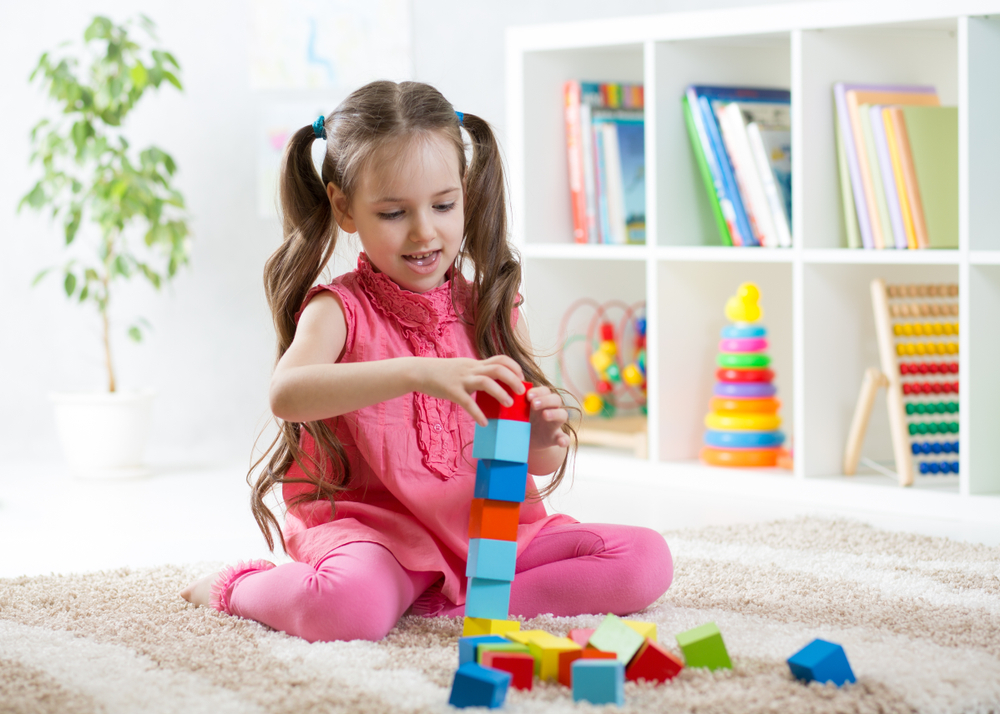Addition skills Worksheets for Ages 3-5
108 filtered results
-
From - To
Discover our engaging addition skills worksheets designed specifically for children aged 3-5! Perfect for young learners, these fun and interactive resources help build essential math foundations through colorful illustrations and relatable scenarios. Each worksheet focuses on basic addition concepts, promoting critical thinking and number recognition while ensuring a playful learning experience. With easy-to-follow instructions and varying difficulty levels, children will enjoy mastering simple addition in no time. Foster your child's confidence and enthusiasm for math as they cultivate their skills through these delightful and educational activities. Start your child’s math journey today with our comprehensive addition skills worksheets!
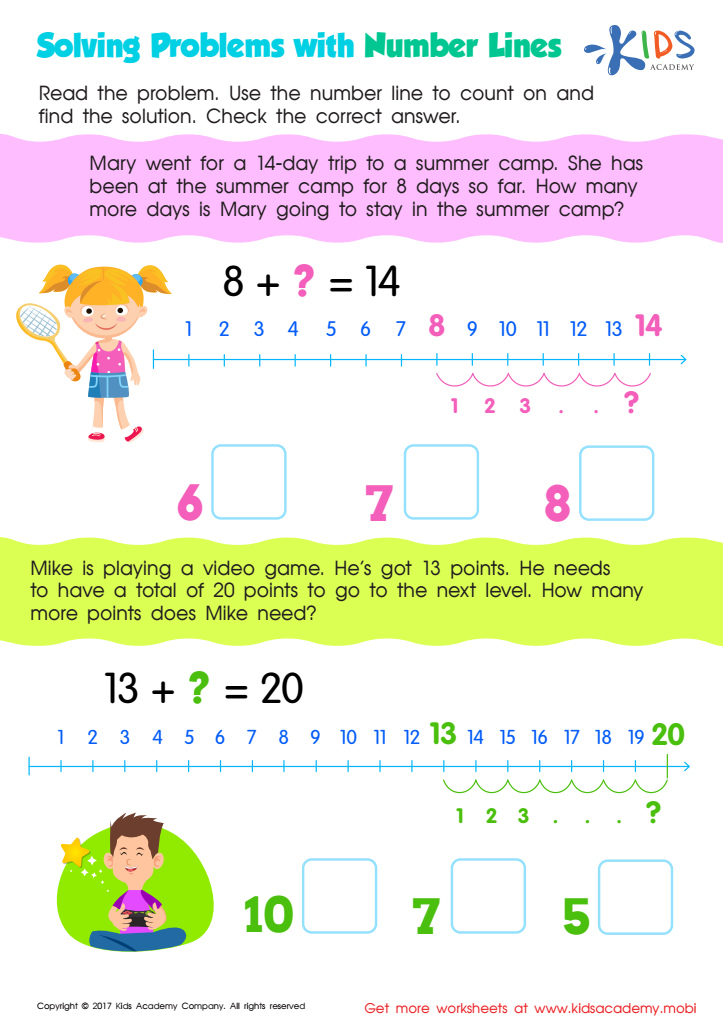

Solving Problems: Number Lines Worksheet
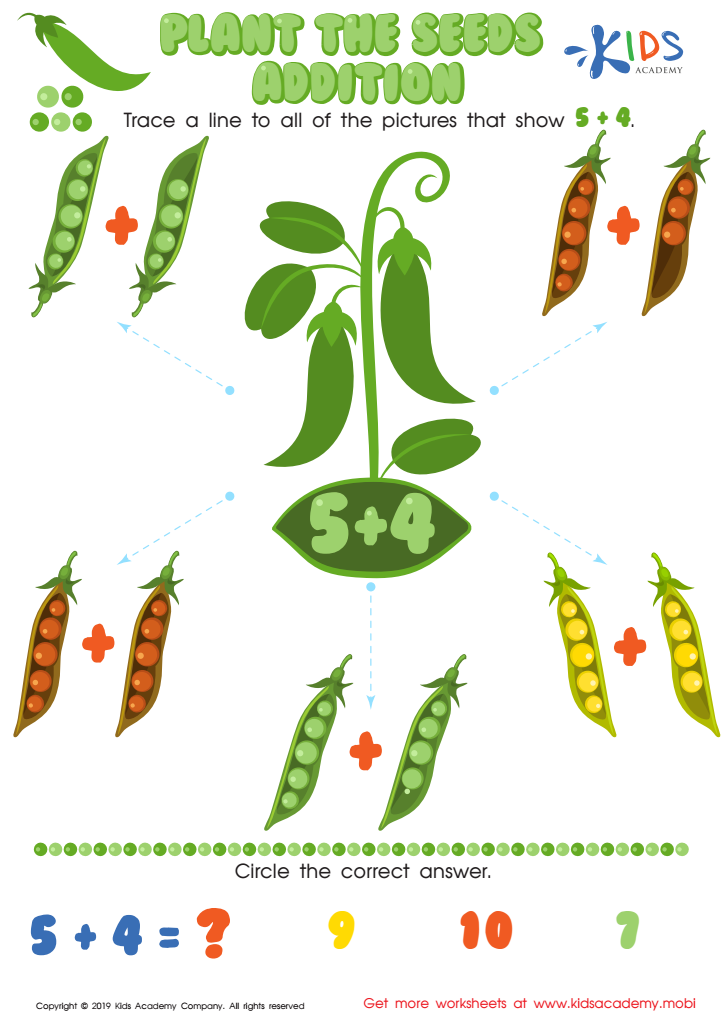

Plant the Seeds Addition Worksheet
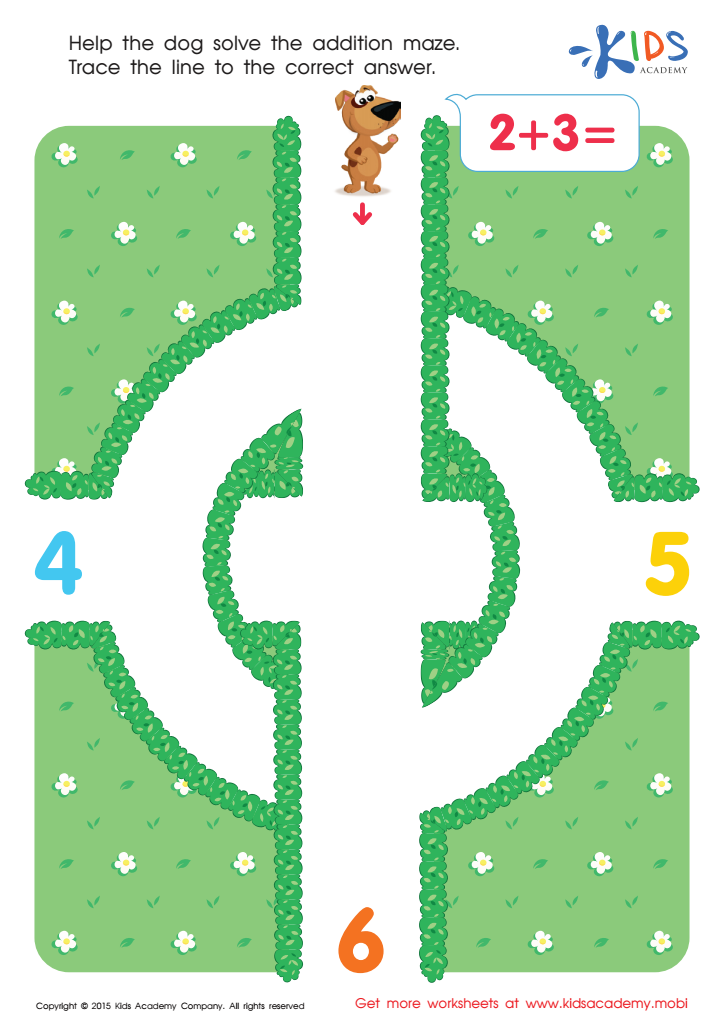

Two And Three Addition Worksheet
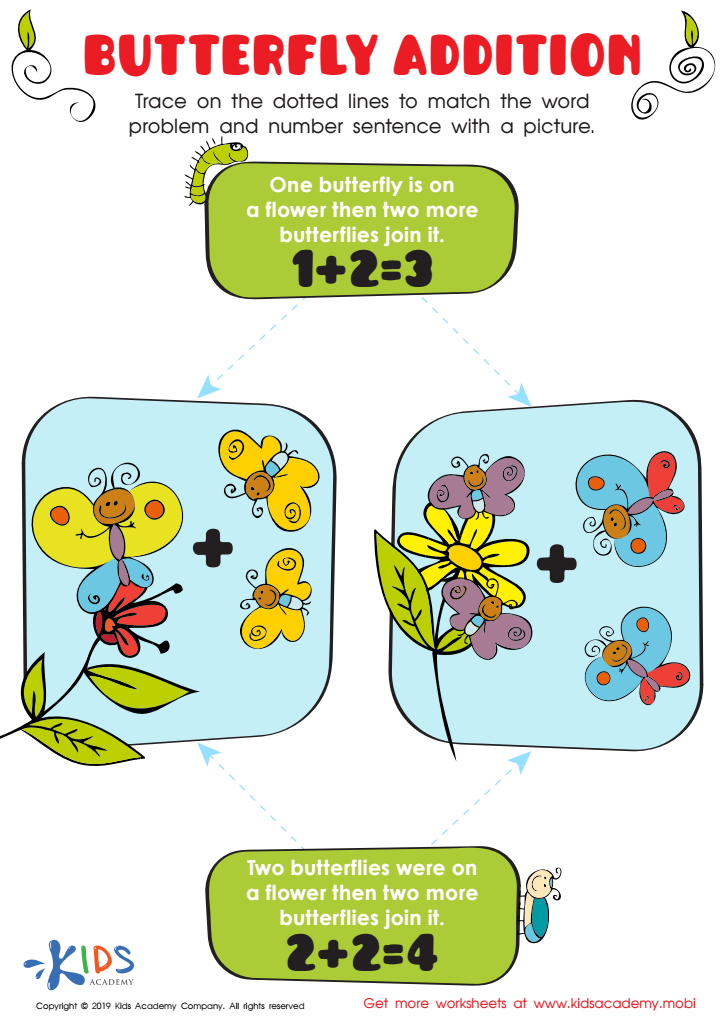

Butterfly Addition Worksheet


7 Continents and 7 Seas Worksheet
Addition skills for children aged 3-5 lay a crucial foundation for their future mathematical development and problem-solving abilities. At this age, children are naturally curious and eager to explore their environment, making it an ideal time to introduce basic math concepts like addition. Early exposure promotes number sense, helping children understand relationships between quantities, which is vital for everyday activities like sharing and comparing.
Moreover, strong addition skills foster cognitive development, encouraging logical thinking, memory retention, and concentration—all essential skills for future learning. When adults take an active role in teaching these concepts through engaging activities and games, they enhance children's interest in math, which can reduce anxiety and create a positive association with the subject.
Math is not just an academic pursuit; it is integral to everyday life—shopping, cooking, and even playing games involve basic addition. By focusing on these skills early, parents and teachers can build confidence in children, equipping them to tackle more complex math concepts as they grow. Ultimately, nurturing addition skills in this formative period paves the way for successful learning experiences and helps children develop essential problem-solving skills that extend beyond the classroom.
 Assign to My Students
Assign to My Students

